Global Education Monitoring Report
This publication aims to monitor progress towards the education targets within the Sustainable Development Goals framework. It is a singular, comprehensive, analytical and authoritative reference for the global follow-up and review of education. With 15 reports produced since 2002, this report has acquired extensive experience in monitoring and policy analysis and a global reputation for excellence, covering themes ranging from inequality, gender and teaching and learning to conflict, literacy and early childhood care and education.
Filter :
Sustainable Development Goals
Subject
Publication date
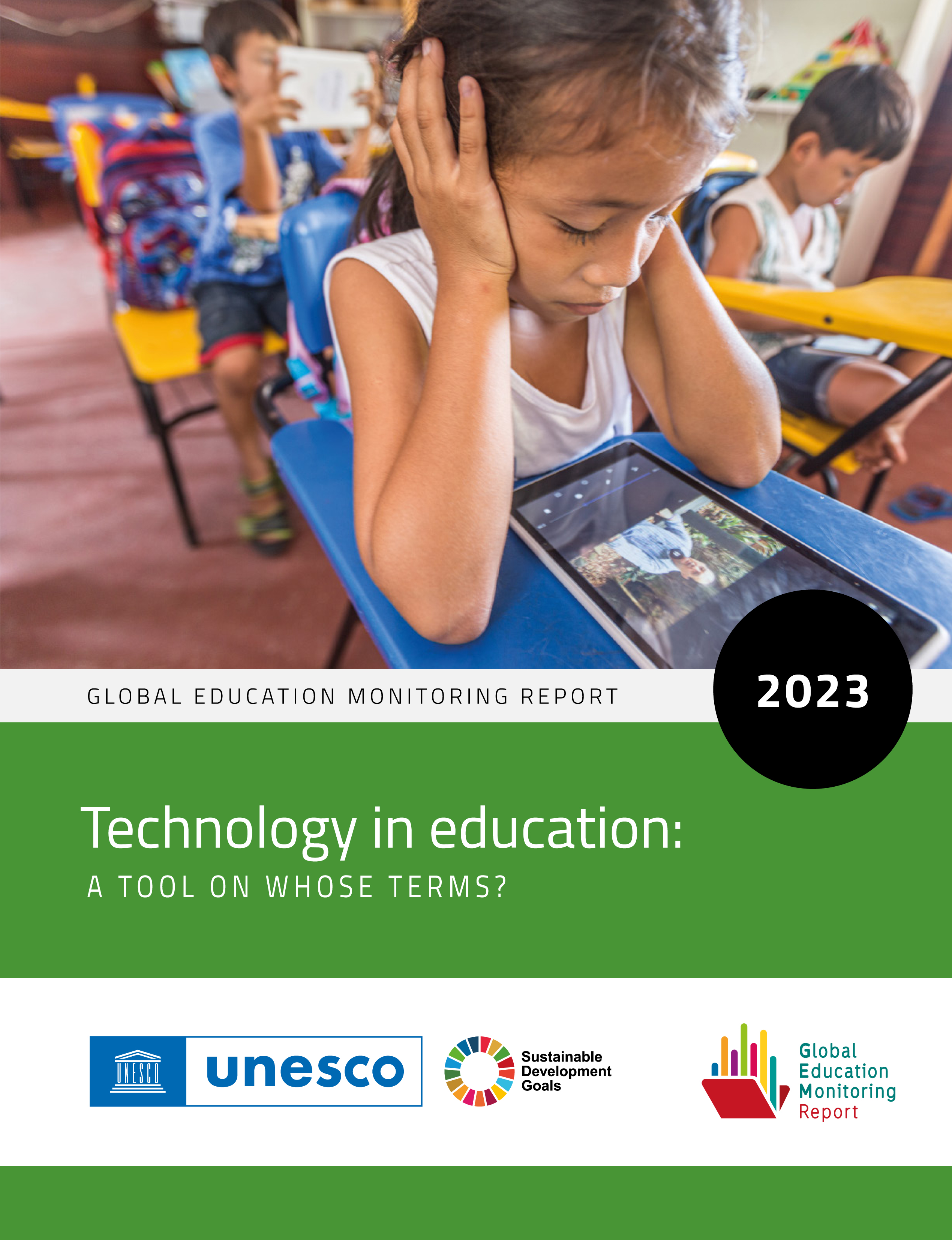
Global Education Monitoring Report 2023
Technology in Education - A Tool on Whose Terms?
As recognised in the Incheon Declaration, the achievement of SDG 4 is dependent on opportunities and challenges posed by technology, a relationship that was strengthened by the onset of the COVID-19 pandemic. Technology appears in six out of the ten targets in the fourth Sustainable Development goal on education. These references recognize that technology affects education through five distinct channels, as input, means of delivery, skill, tool for planning, and providing a social and cultural context. There are often bitter divisions in how the role of technology is viewed, however. These divisions are widening as the technology is evolving at breakneck speed. The 2023 GEM Report on technology and education explores these debates, examining education challenges to which appropriate use of technology can offer solutions (access, equity and inclusion; quality; technology advancement; system management), while recognizing that many solutions proposed may also be detrimental. The report also explores three system-wide conditions (access to technology, governance regulation, and teacher preparation) that need to be met for any technology in education to reach its full potential.
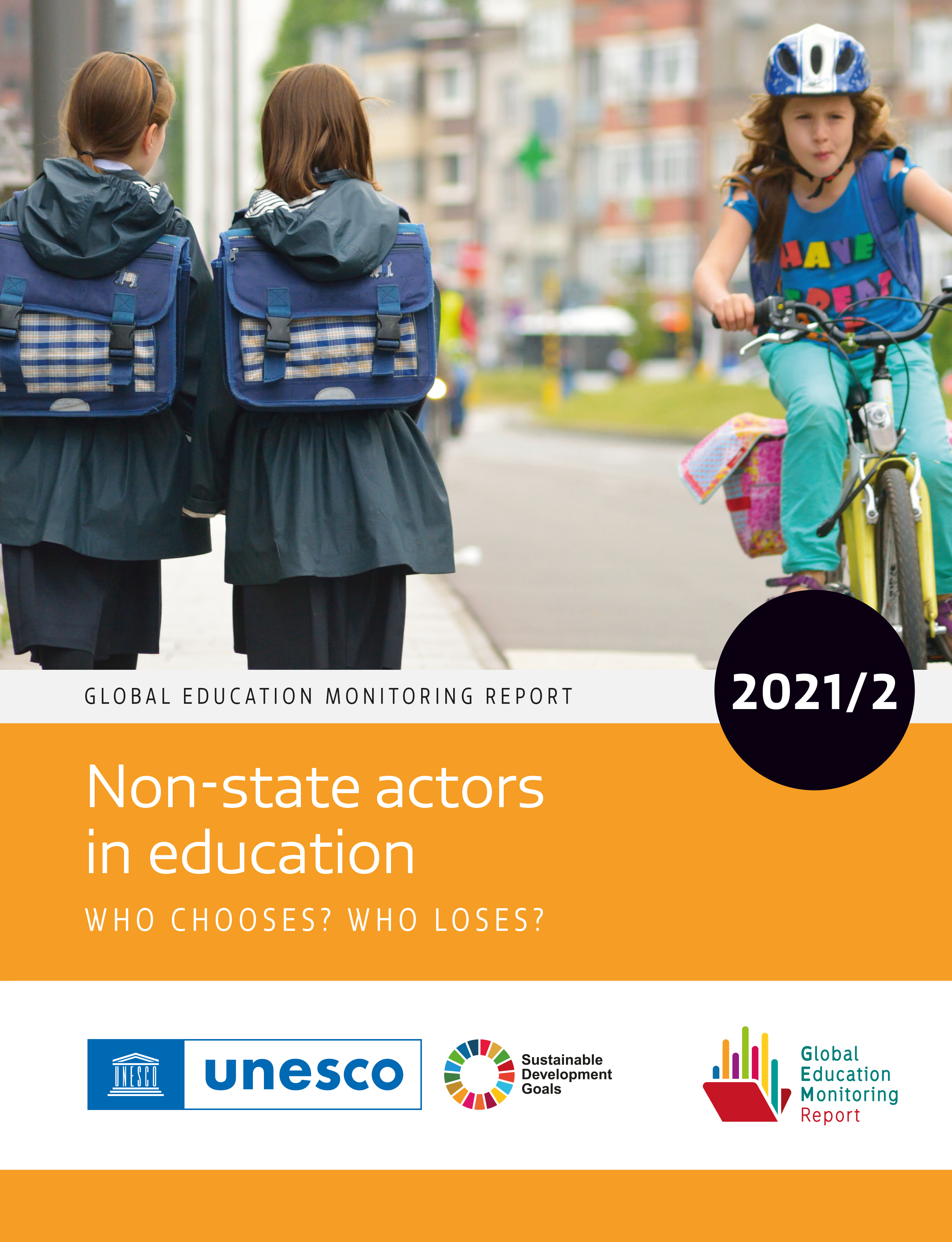
Global Education Monitoring Report 2021/2
Non-state Actors in Education: Who Chooses? Who Loses?
Non-state actors’ role extends beyond provision of schooling to interventions at various education levels and influence spheres. Alongside its review of progress towards SDG 4, including emerging evidence on the COVID-19 pandemic’s impact, the 2021/2 Global Education Monitoring Report urges governments to see all institutions, students and teachers as part of a single system. Standards, information, incentives and accountability should help governments protect, respect and fulfil the right to education of all, without turning their eyes away from privilege or exploitation. Publicly funded education does not have to be publicly provided but disparity in education processes, student outcomes and teacher working conditions must be addressed. Efficiency and innovation, rather than being commercial secrets, should be diffused and practised by all. To that end, transparency and integrity in the public education policy process need to be maintained to block vested interests. The report’s rallying call – Who chooses? Who loses? – invites policymakers to question relationships with non-state actors in terms of fundamental choices: between equity and freedom of choice; between encouraging initiative and setting standards; between groups of varying means and needs; between immediate commitments under SDG 4 and those to be progressively realized (e.g. post-secondary education); and between education and other social sectors.
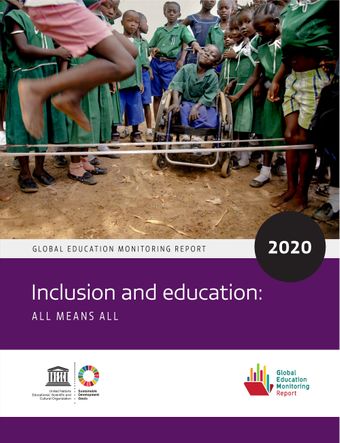
Global Education Monitoring Report 2020
Inclusion and Education - All Means All
This publication assesses progress towards Sustainable Development Goal 4 (SDG 4) on education and its ten targets, as well as other related education targets in the SDG agenda. It addresses inclusion in education, drawing attention to all those excluded from education, because of background or ability. The report is motivated by the explicit reference to inclusion in the 2015 Incheon Declaration, and the call to ensure an inclusive and equitable quality education in the formulation of SDG 4, the global goal for education. It reminds us that, no matter what argument may be built to the contrary, we have a moral imperative to ensure every child has a right to an appropriate education of high quality.
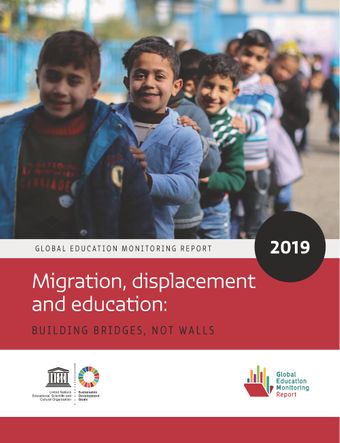
Global Education Monitoring Report 2019
Migration, Displacement and Education – Building Bridges, Not Walls
The 2019 Global Education Monitoring Report examines the education impact of migration and displacement across all population movements: within and across borders, voluntary and forced, for employment and education. It also reviews progress on education in the 2030 Agenda for Sustainable Development. In view of increasing diversity, the report analyses how education can build inclusive societies and help people move beyond tolerance and learn to live together. Education provided equally builds bridges; unequal provision raises walls between migrants and refugees and their host communities. Two new global compacts on migrants and refugees recognize education’s role and set objectives aligned with the global commitment to leave no one behind. This report is a vital toolkit for these compacts. It covers policy issues that address seasonal migrants, rural school consolidation, intercultural curricula, refugee inclusion in national education systems and elimination of segregation, qualifications recognition, targeting of school funding, more effective humanitarian education aid and teacher preparedness for diverse classrooms in emergency, protracted and “new normal” contexts. The report calls on countries to see education as a tool to manage migration and displacement and an opportunity for those needing one.
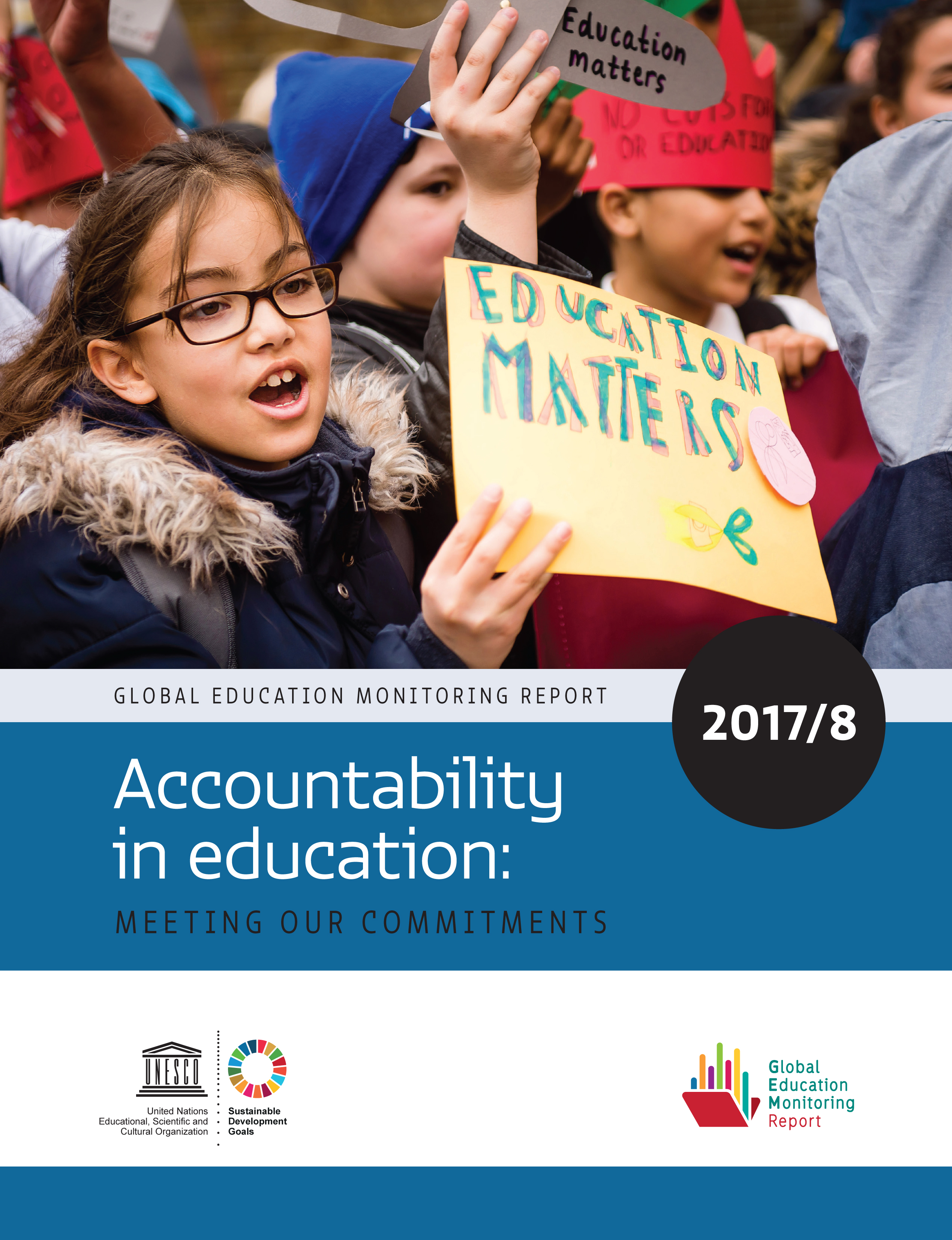
Global Education Monitoring Report 2017/8
Accountability in Education - Meeting Our Commitments
In 2017, the second report in the Global Education Monitoring (GEM) Report series continued the assessment of progress towards the Sustainable Development Goal on education (SDG4) and its 10 targets, as well as other related education targets in the SDG agenda. It also investigates accountability in education, analyzing how all relevant stakeholders can provide education more effectively, efficiently and equitably. The report examines different accountability mechanisms that are used to hold governments, schools, teachers, parents, the international community, and the private sector accountable for inclusive, equitable and quality education. By analysing which policies make accountability work or fail, and which external factors impact on their success, the 2017/8 GEM Report concludes with concrete recommendations that will help build stronger education systems.
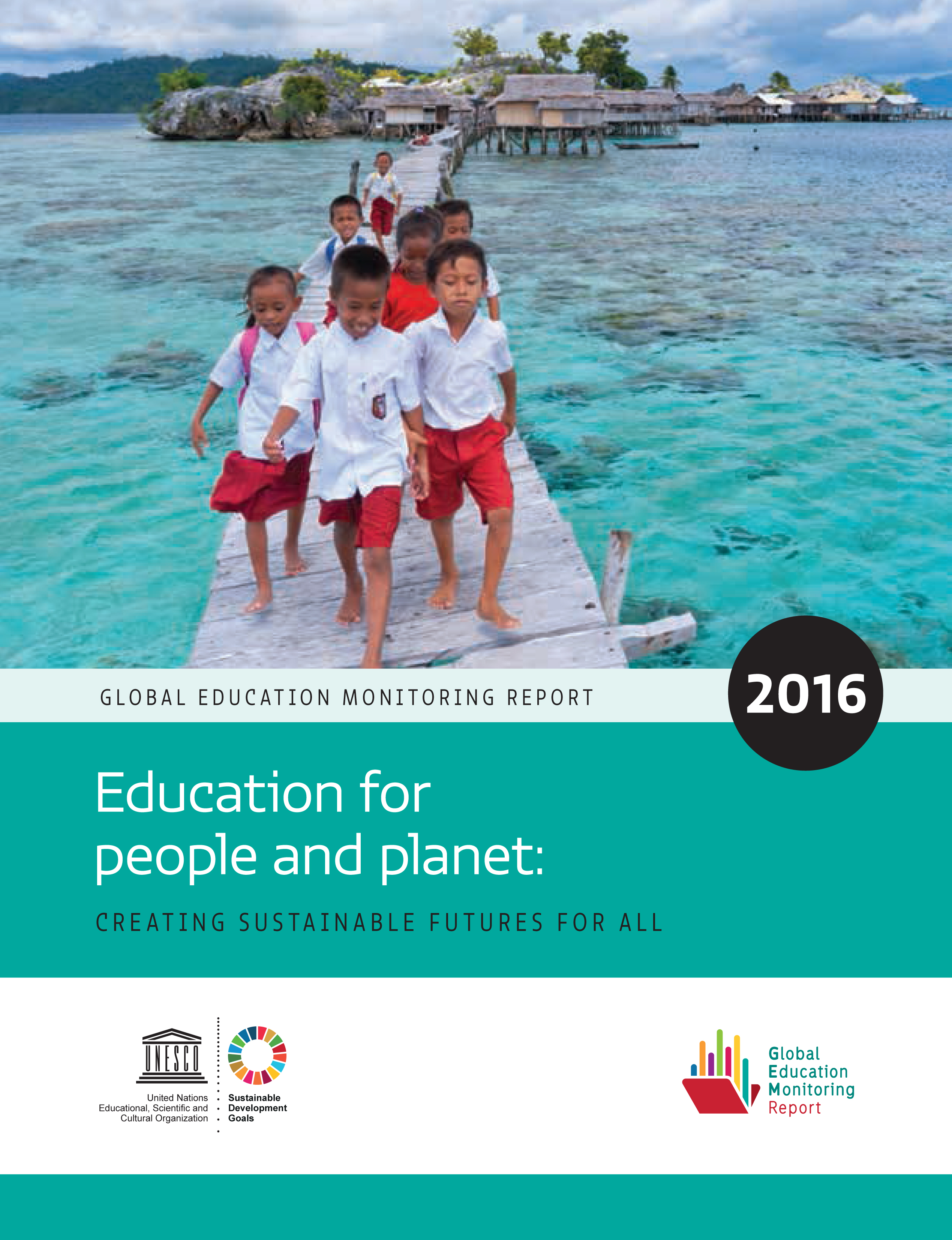
Global Education Monitoring Report 2016
Education for People and Planet - Creating Sustainable Futures for All
The 2016 Global Education Monitoring (GEM) Report by UNESCO shows the potential for education to propel progress towards all global goals outlined in the new 2030 Agenda for Sustainable Development (SDGs). It also shows that education needs a major transformation to fulfill that potential and meet the current challenges facing humanity and the planet. There is an urgent need for greater headway in education. On current trends, the world will achieve universal primary education in 2042, universal lower secondary education in 2059 and universal upper secondary education in 2084. This means the world would be half a century late for the 2030 SDG deadline.
